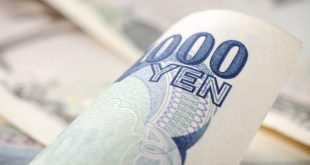Asian stock markets broadly declined on Wednesday, reacting to the ballistic missile strike by Iran on Israel, which heightened concerns of a potential wider regional conflict. Investors shifted toward safe-haven assets, pushing gold prices close to all-time highs and supporting the U.S. dollar.
Key Market Movements:
- Japan & South Korea: The Nikkei dropped by 2%, while South Korea’s KOSPI fell by 0.6%.
- Hong Kong: Contrary to the broader trend, the Hang Seng index soared by 6%, buoyed by Beijing’s ongoing stimulus measures, which helped lift the MSCI Asia-Pacific index by 0.6%.
- Other Markets: Mainland Chinese markets remained closed for the Golden Week holiday, and trading in Taiwan was suspended due to a typhoon.
Oil Market Response:
- Brent Crude: Rose by 1.5% to $74.66 per barrel, extending a 2.5% gain from the previous day.
- WTI Crude: Increased by 1.7% to $71 per barrel after a 2.4% rally on Tuesday, as concerns over potential supply disruptions in the Middle East drove prices higher.
Global Market Reactions:
- U.S. Markets: S&P 500 futures weakened by 0.15%, following a 0.9% drop in the cash index overnight.
- European Markets: Pan-European STOXX 50 futures indicated a potential rise of 0.4%.
Investor Shifts Toward Safe-Haven Assets:
- U.S. Treasury Yields: Remained depressed during Asian trading hours.
- Gold: Traded near an all-time high, reflecting increased risk aversion.
- U.S. Dollar: Strengthened against the euro, supported by resilient U.S. job market data and expectations of a smaller interest rate cut by the Federal Reserve in November.
The market sentiment remains cautious amid geopolitical tensions, and investors will closely monitor further developments in the Middle East and upcoming central bank decisions in the U.S. and Europe.
 Noor Trends News, Technical Analysis, Educational Tools and Recommendations
Noor Trends News, Technical Analysis, Educational Tools and Recommendations





